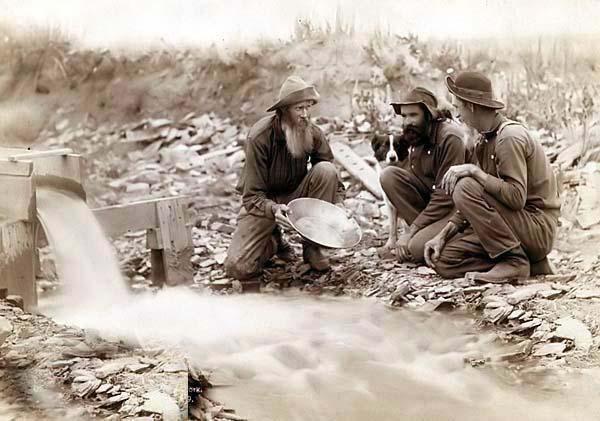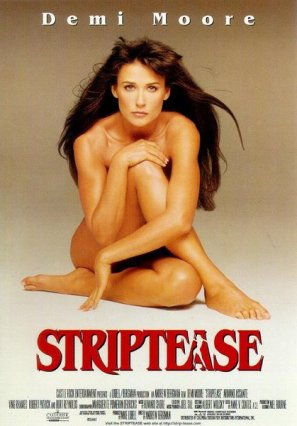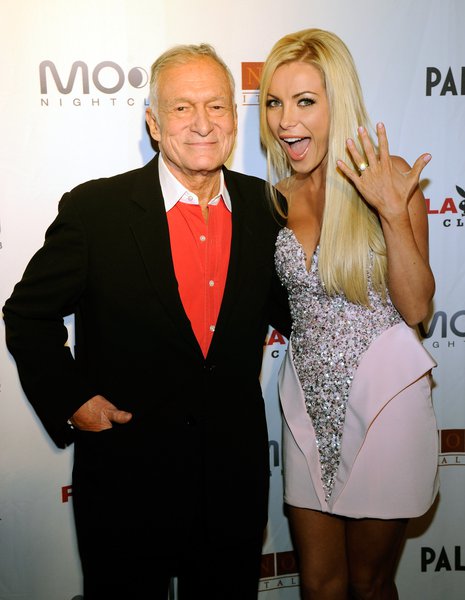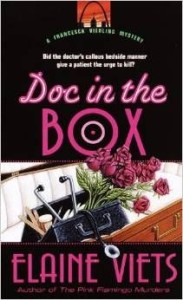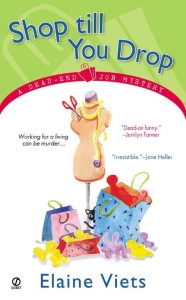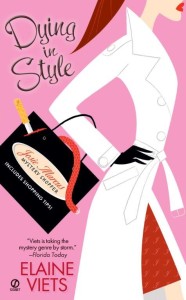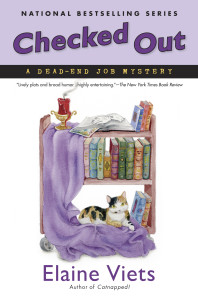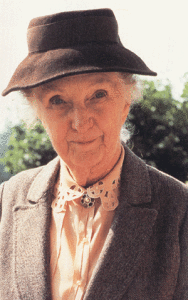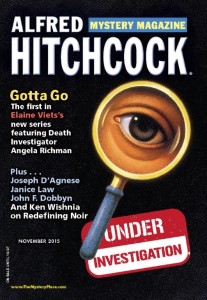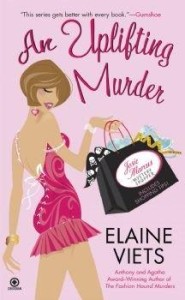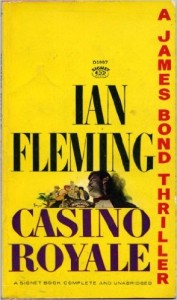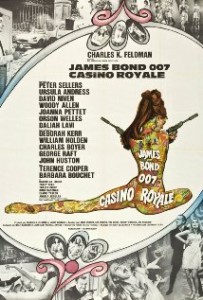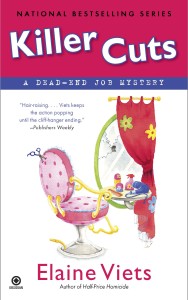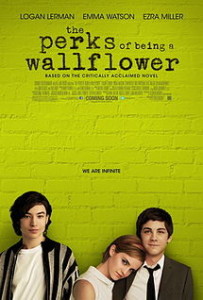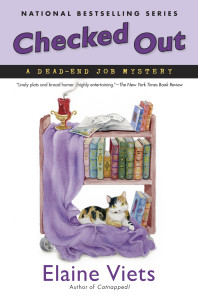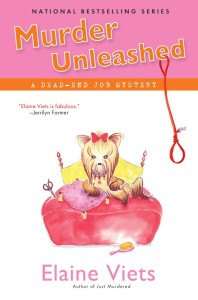By Elaine Viets
Were the nearly 150 tweets from a stripper nicknamed Zola, a wild tale about strippers, suicide, kidnapping and murder, true?
Is Zola a real stripper who spent a wild weekend in Florida “trapping” – ie, hooking – with Jessica, a woman she met at Hooters?
Or was this a hoax?
These questions have set the blogosphere a-Twitter ever since Frazier Tharpe wrote a blog called “Zola’s Twitter Tale of Strippers in Florida Is Easily the Wildest Thing You’ll Read All Week.”
All week?
Zola’s story wins for the year, fact or fiction.
Warning: This story is X-rated. So be careful reading it at the office.
 Tharpe writes, “It starts when Zola, a loquacious Hooters waitress, strikes up a friendship with a ‘white bitch’ customer (Zola’s words, not mine) who several tweets later is revealed to be named Jessica. The two ‘girls’ (Tharpe’s words, not mine) get to vibing over their shared ‘hoeism,’ forming such a bond that the next day said White Bitch Jessica invites Zola to travel to Florida with her. Zola, despite reservations over having just met ‘this here bitch,’ agrees to go because apparently Florida is ripe for dancing and ‘hoeism,’ and one can rake in as much as $15k.”
Tharpe writes, “It starts when Zola, a loquacious Hooters waitress, strikes up a friendship with a ‘white bitch’ customer (Zola’s words, not mine) who several tweets later is revealed to be named Jessica. The two ‘girls’ (Tharpe’s words, not mine) get to vibing over their shared ‘hoeism,’ forming such a bond that the next day said White Bitch Jessica invites Zola to travel to Florida with her. Zola, despite reservations over having just met ‘this here bitch,’ agrees to go because apparently Florida is ripe for dancing and ‘hoeism,’ and one can rake in as much as $15k.”
Tharpe’s blog was only the start. Rolling Stone wrote: “Zola Tells All: The Real Story Behind the Greatest Stripper Saga Ever Tweeted.” There were thoughtful commentaries, serious stories about sex trafficking, moralizing, grandstanding and movie deal rumors. Bloggers denounced Zola as a hoax – possibly a hoax to promote Beyonce. Although that hoax story may be a hoax, too.
Whether this “insane, epic story” Tharpe wrote about is a hoax or not, here’s what’s real:
It’s damn good story telling.
I’ll give you the first few tweets from @_zolarmoon, aka Azaih King. You can read the rest here. 
Http://www.complex.com/pop-culture/2015/10/zola-twitter-insane-epic-story
(1) AZIAH KING: Okay listen up. This story is long. So I met this white bitch at hooters. I was her waitress! She came in with this old ass big ass black dude
(2) So you know as a hooters girl we have to talk to our customers. So I sit wit them & we get to talkin & she tells me she dances! So I’m like
(3) Oh yes bitch me too! Then she tells me this hulking black man is her sugar daddy. & I’m like oh yes bitch me SD at home. I feel it I feel it
(4) So we vibing over our hoeism or whatever. & we exchange numbers!! & we like “next time u dance hum ima come dance wit you1” & they leave
(5) So THE NEXT DAY I get a text like “BITCH LETS GO TO FLORIDA!” & I’m like huh??? She’s like “I’m going to dance in Florida, let’s go!!”
(6) Now I’m skeptical like DAMN bitch we just met and we already taking hoe trips together???? BUT I had went to FL 2 months prior & made 15K
(7) So lowkey I was down. So I was like “okay I’ll go. Who’s all going & when we leaving.” All this bitch says is “be ready by 8”
And they’re off to Florida for mayhem and murder.
What can we learn?
I love Zola’s direct style. She told a quick, clean story.
I’ve read too many mysteries with philosophical drug dealers and killers rationalizing their brutal crimes. “Philosopher crooks” are mystery writing staples, popular in crime fiction, TV shows and movies.
But how real are these characters?
I’ve lived in iffy neighborhoods on Capitol Hill and in St. Louis. I’ve been stopped by enterprising locals, who said, “Give me your money, bitch.”
Direct and to the point.
They did not lament their poor education, lack of economic opportunity, sick mothers (as in parents) or hungry children. They did it – and paid for it later.
Maybe.
Members of the demimonde, like Zola, have poor impulse control. They’re never sorry, unless they’re caught.
Too often, we clutter our mysteries with low-rent crooks who agonize, apologize and justify their crimes because that’s what WE would do.
But what would THEY do?
Is Zola’s Twitter saga real? I can’t say.
But it sounds real.
And that’s what’s important.
+++++++++++++++++++++++++++++++++++++++++++++++++++++++++
 Want something sweet for Christmas? I’m giving away Murder With All the Trimmings, my fourth Josie Marcus Mystery Shopper mystery. To win, click Contests at www.elaineviets.com
Want something sweet for Christmas? I’m giving away Murder With All the Trimmings, my fourth Josie Marcus Mystery Shopper mystery. To win, click Contests at www.elaineviets.com


